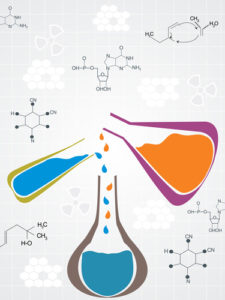Common Food and Drug Interactions
Everyone has heard that prescription drugs can interact with anything you put in your body, from something obvious like alcohol to the not-so-obvious like grapefruits. Are you aware of some of the most common food and drug interactions? Read on so you can avoid a bad interaction, and make sure to ask your doctor if you have any questions about medication.
Everyday Foods To Watch For Drug Interactions
You wouldn’t think a common fruit would interact with medicine, but grapefruit is a big one to avoid on a number of prescriptions. It has been shown to interact with anti-anxiety medicines and statins, which are cholesterol pills. Grapefruit causes the body to metabolize drugs abnormally, which can result in higher or lower levels of the medicine in your body.
Does this mean you need to avoid all citrus? Absolutely not! Grapefruit has unique compounds called furanocoumarins which are the active ingredient that cause alterations in your body. Orange juice and other citrus like lemon and limes do not contain this ingredien t.
t.
Green leafy vegetables can also interact with the drugs in your body, especially if you are on blood thinners to prevent clotting. The good news is that you don’t need to cut these out of your diet completely. Problems arise when you suddenly increase or decrease your intake, so eat them consistently – which is part of a healthy diet anyway – and you will avoid any issues.
Ingredients That Can Have An Impact
Heart Failure and high blood pressure medicines can be directly affected by a component of natural black licorice, glycyrrhiza. This ingredient can deplete the body of potassium while causing an increased retention of sodium, and should be avoided when taking these medications.
Another commonly found ingredient that can cause an interaction is tyramine, which is found in a number of everyday products, including but not limited to: chocolate, some cheeses, cured and/or processed meats, and draft beers. Several medications interact with the breakdown of tyramine, including certain drugs used to treat depression and Parkinson’s disease.
>Whenever you start a new medication, make sure to read the drug warning labels and educate yourself on possible interactions. As always, talk to your doctor about any and all questions and concerns, and if you have any side effects from your medication, make sure to discuss it.







